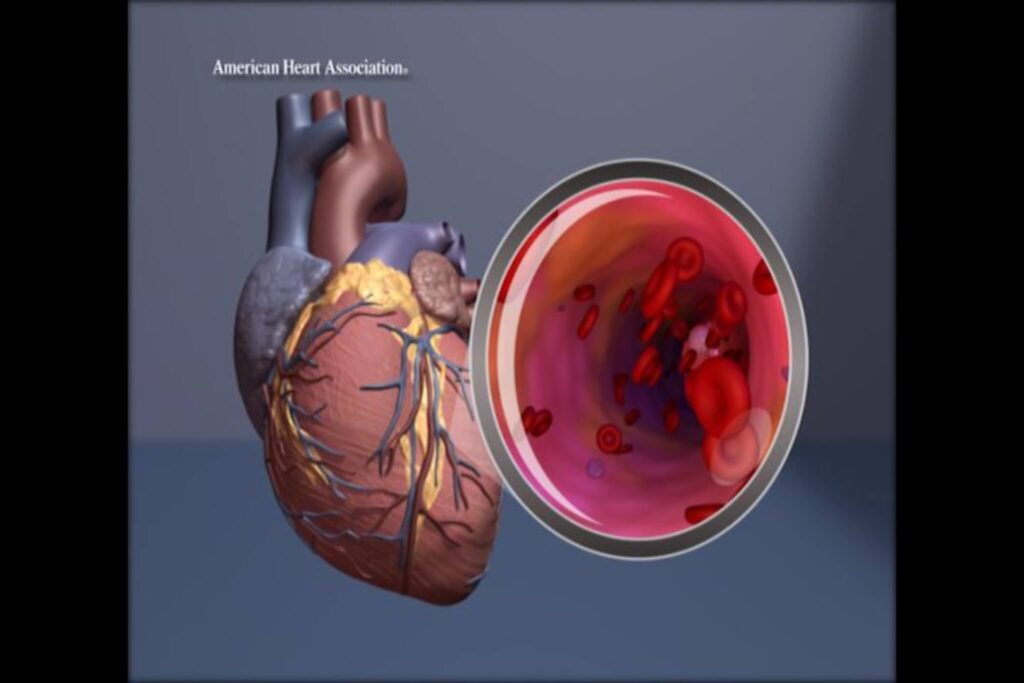Heart Surgeons Find 58% of Patients Have Plastic Clogging Arteries
 By Chris Melore
By Chris Melore
Key Findings:
- 58% of patients had microplastics and nanoplastics in their artery plaque.
- Polyethylene, an ingredient in plastic bags, was a common pollutant.
- Those with plastic in arteries were 4 times more likely to have serious heart problems.
NAPLES, Italy — In a world where plastic is literally in the air, a concerning new study finds that people with heart disease may have more plastic than plaque in their arteries. In fact, researchers in Italy discovered that more than half of the patients they examined had detectable microplastics and even tinier nanoplastics mixed in with the plaque in their clogged arteries.
The groundbreaking study focused on patients undergoing surgery for a condition related to the buildup of plaque in the arteries — specifically, in the carotid artery, which supplies blood to the brain. Researchers analyzed the plaque extracted during these procedures, employing sophisticated techniques like pyrolysis – gas chromatography–mass spectrometry, stable isotope analysis, and electron microscopy. These high-tech methods can reveal the chemical makeup of substances and visualize the tiniest particles, essentially allowing scientists to “see” the presence of microplastics and nanoplastics (collectively known as MNPs) in the arterial plaque.
What they found was startling: nearly six in 10 patients had these plastic particles embedded within the plaque in their arteries. Specifically, polyethylene, the materials that make shopping bags and packaging materials, was found in the plaque of 58.4 percent of patients. Polyvinyl chloride, used in everything from pipes to vinyl records, was present in 12.1 percent of the samples.
The presence of these materials was not silent; it was visually confirmed by electron microscopy, which showed jagged-edged particles nestled among the cells designed to remove debris and scattered in the plaque itself. Some particles even contained chlorine, a component of polyvinyl chloride, hinting at the diverse nature of plastics invading our vascular systems.
The study didn’t stop at just identifying the presence of these particles. It went further to explore the implications for patient health. By following the health outcomes of 257 patients over an average period of nearly 34 months, the researchers discovered that those with MNPs in their plaque faced a much higher risk of severe cardiovascular events — like heart attacks, strokes, or even death — compared to those without. The risk was over four times higher for those with MNPs in their arterial plaque.
“Humans are exposed to microplastics and nanoplastics by means of ingestion and inhalation. Previous investigations have detected microplastics and nanoplastics in multiple tissues, including colon, placenta, liver, spleen, and lymph node tissues. Animal studies indicate that microplastics and nanoplastics can cause toxic effects at multiple sites, potentially by inducing oxidative stress. Until now, information on the health effects in humans of ingested or inhaled microplastics and nanoplastics has been scant,” writes Philip J. Landrigan, M.D. in an editorial tied to the new study.
“The plastics crisis has grown insidiously while all eyes have focused on climate change. Like solutions to climate change, resolution of the problems associated with plastics will require a wide-scale transition away from fossil carbon. The path will not be easy, but inaction is no longer an option,” Dr. Landrigan concludes.
The findings are published in the New England Journal of Medicine.
You might also be interested in:
Source: Study Finds
Chris Melore has been a writer, researcher, editor, and producer in the New York-area since 2006. He won a local Emmy award for his work in sports television in 2011.
Image: Heart illustration with magnification of the artery. Nearly 6 in 10 patients had plastic particles embedded within the plaque in their arteries. (credit: American Heart Association)
Source: https://www.naturalblaze.com/2024/03/heart-surgeons-find-58-of-patients-have-plastic-clogging-arteries.html
Anyone can join.
Anyone can contribute.
Anyone can become informed about their world.
"United We Stand" Click Here To Create Your Personal Citizen Journalist Account Today, Be Sure To Invite Your Friends.
Please Help Support BeforeitsNews by trying our Natural Health Products below!
Order by Phone at 888-809-8385 or online at https://mitocopper.com M - F 9am to 5pm EST
Order by Phone at 866-388-7003 or online at https://www.herbanomic.com M - F 9am to 5pm EST
Order by Phone at 866-388-7003 or online at https://www.herbanomics.com M - F 9am to 5pm EST
Humic & Fulvic Trace Minerals Complex - Nature's most important supplement! Vivid Dreams again!
HNEX HydroNano EXtracellular Water - Improve immune system health and reduce inflammation.
Ultimate Clinical Potency Curcumin - Natural pain relief, reduce inflammation and so much more.
MitoCopper - Bioavailable Copper destroys pathogens and gives you more energy. (See Blood Video)
Oxy Powder - Natural Colon Cleanser! Cleans out toxic buildup with oxygen!
Nascent Iodine - Promotes detoxification, mental focus and thyroid health.
Smart Meter Cover - Reduces Smart Meter radiation by 96%! (See Video).





